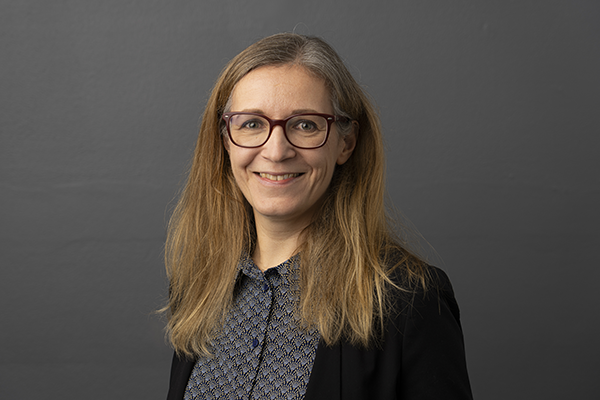Ingvild Berta Ina Bode
Research leader

Project title
Human-Machine Interaction: The Distributed Agency of Humans and Machines in Military AI (HuMach)
What is your project about?
My project assesses how integrating AI technologies in the military domain changes the exercise of agency, or the ability to make choices and act, in warfare. Rather than replacing humans, current developments point to increasing practices of human-machine interaction. This development raises foundational challenges for human agency that have not yet been addressed. My Sapere Aude project offers novel conceptualisations of distributed agency in warfare, investigates how human-machine interaction affects the deliberative space that humans can exercise, and identifies associated governance demands. To achieve these goals, my project unpacks and examines the Responsible AI agenda that is gaining ground in some Western states.
How did you become interested in your particular field of research?
I have a long-standing research interest in understanding processes of normative and policy change in the context of warfare and using force. In this, I have increasingly focused on the role of technologies and how technologies change what actors consider as appropriate when it comes to using force. Initially, my work looked at armed drones and then transitioned to the broader theme of autonomous and AI technologies in weapon systems. This became the focus of my first major research project AutoNorms (ERC Starting Grant) where I led a team of researchers in investigating how practices of designing, training personnel for, and using weapon systems incorporating autonomous and AI technologies change international norms. The findings of AutoNorms point in the direction of fundamental changes in the extent to which human remain in control of the use of force. But to fully understand the extent of these changes, we need to look much more deeply and holistically at agency in the context of human-machine interaction.
What are the scientific challenges and perspectives in your project?
My project tackles foundational concerns of the social sciences, such as building an understanding and appreciation of the differences between human agency and machine agency. I will address this theory-building challenge through interacting and discussing closely with my interdisciplinary Sapere Aude team. Investigating human and machine agency in the specific context of warfare adds another challenging layer because of political sensitivity and secrecy. To ensure the necessary access to research participants, my project will be able to build on my strong stakeholder network in the context of military applications of AI which are amplified by the respective networks of team members. Further, the HuMach project will primarily recruit research participants from Western countries which have proven to be more accessible for research in this space.
What is your estimate of the impact, which your project may have to society in the long term?
Integrating AI technologies in military decision-making implies practices of human-machine interaction in an extremely sensitive social context of life and death decisions. But interacting with AI technologies is, of course, not exclusive to the military domain but already part of various other societal fields and contexts. In studying how human-machine interaction changes agency, my project therefore contributes to a much wider societal conversation around better understanding the human relationship with AI that is one of the major challenges of the present. HuMach does this by providing crucial critical thinking around the consequences of sharing tasks with machines.
Which impact do you expect the Sapere Aude programme will have on your career as a researcher?
Studying the changing exercise of human agency in warfare and its consequences requires bringing together insights across disciplines such as political theory, Science and Technology Studies, security studies, and international law. The Sapere Aude: DFF-Starting Grant allows me to lead an interdisciplinary team at the scale necessary to address the big question of agency. Leading this project and this team will not only allow be to expand my interdisciplinary credentials but also help to push the potential of International Relations as a discipline to address a fundamental research question of today. In this, the Sapere Aude funding will also give me the opportunity to pursue this research at a grander, collaborative scale and will become the basis for further grants. The Sapere Aude: DFF-Starting Grant will enable me to solidify my position as a leading scholar in the field of military artificial intelligence within the realm of international relations.
Background and personal life
I was born and raised in Germany where I also completed my PhD in the very picturesque (if too small) university town of Tübingen. Before moving to Odense with my husband and our now 4-year-old son, I lived and worked in Japan and the United Kingdom. I remain a huge fan of Japanese food, design, and culture and an avid listener of my favourite British radio stations. Another great passion is following club and international football, although watching weekend matches live now clashes with the more important quality family time. I have high hopes that my son will soon want to watch more than the first five minutes of a match. As a family, we enjoy spending time outdoors, going for seaside walks, spending time on the beach, visiting gardens and castles, and – mostly – hanging out on and around playgrounds on Funen.
View all research leaders here
Research institution
University of Southern Denmark
Research field
International Relations
City of your current residence
Odense
High school
Otta Hahn Gymnasium Springe, Germany
